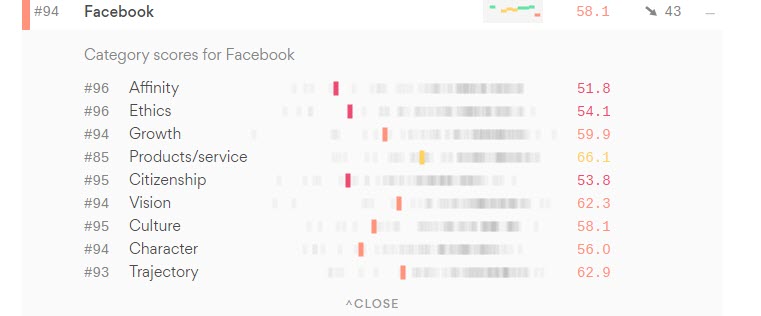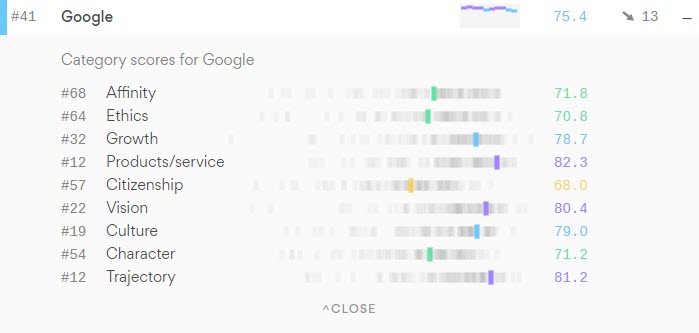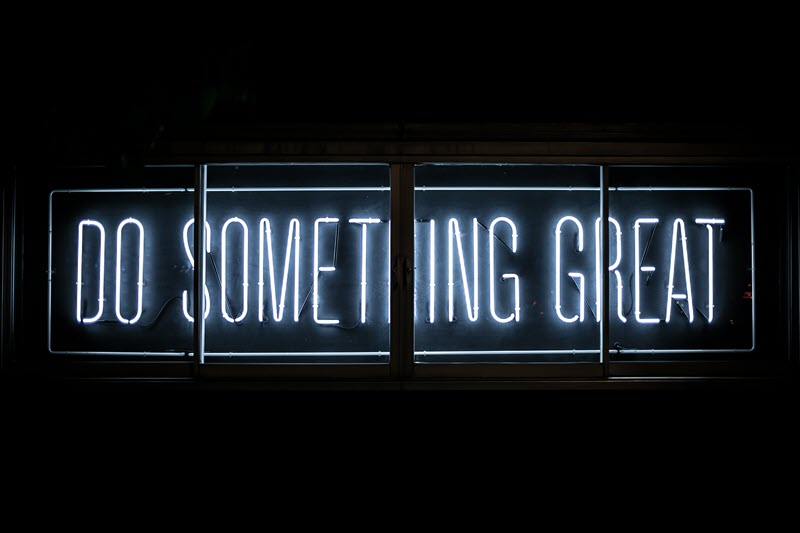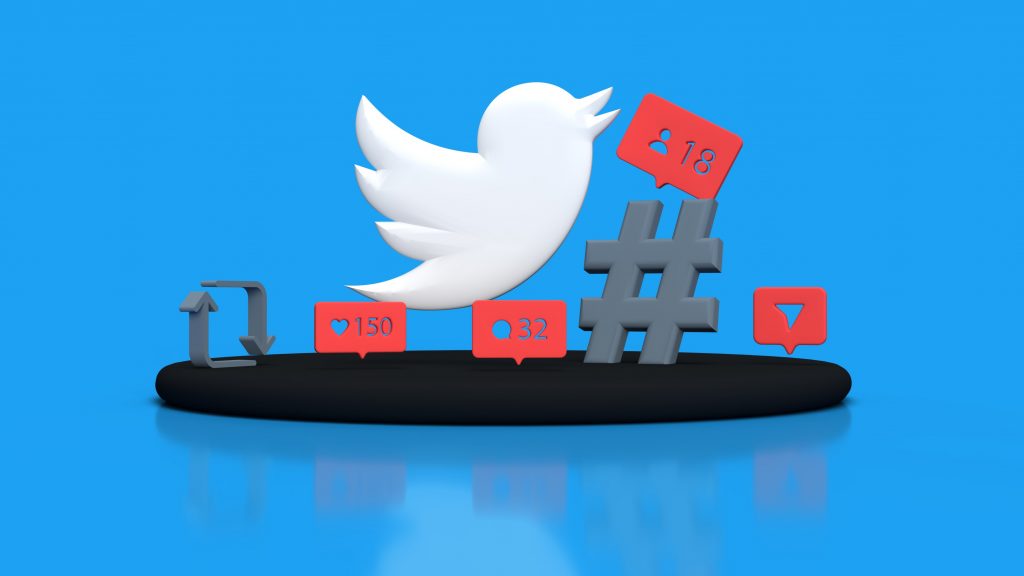Axios has released the results of the latest Axios Harris Poll 100 survey. It conducted the research by asking U.S. adults to rank companies based on their corporate reputation.
The participants were not happy with Facebook, at all. It fell 43 places down the top 100 list, with an overall reputation score of 58.1 (which is categorised as “very poor” and places it at 94 out of the top 100 companies).
While none of Facebook’s scores (for things like ‘ethics’, ‘growth’, ‘vision’ and ‘culture’) fell into the critical stage (a reputation rating below 50), it’s clear that although people like using the product, they don’t like the brand behind it. They don’t feel that the brand has a positive impact on the world, or is very ethical.

For context, Google has a reputation score of 75.4, and came in at 41 in the top 100 in terms of reputation ranking (although it did fall 13 places from 2018).
The participants ranked Google as “excellent” (the highest reputation tier) for its products and services and its trajectory and vision. Its reputation for citizenship initiatives was its lowest score, but people still considered its reputation “fair” in this area.

Some brands in the list have had major reputation issues to deal with in the past year.
- Amazon has been in the news for working conditions and its CEO’s personal life, but it only fell one place in the rankings to no.2 in the list (swapping places with U.S. supermarket brand Wegmans). People gave it “excellent” or “very good” for everything. Citizenship scored the lowest (at 76.6 out of 100).
- Johnson & Johnson has had the baby powder scandal, yet the participants gave it good, or very good scores for everything. It was ranked 33 in the top 100 list (moving up seven places from 2018).
- Electronic Arts is a video game producer that is always facing the wrath of the gaming community. However, it entered the reputation ranking for the first time in 2019 with a “good” reputation (ranked 51 out of the top 100, with a reputation score of 73.6).
- Trump.org dropped two places to 98 in the list (beating Philip Morris and the United States Government, which the survey participants identified as a company for the first time). Participants viewed The Trump organisation as having a critically bad reputation for character, culture, citizenship, ethics and affinity. It did manage to simply have a “poor” reputation for vision.
As we see with Facebook, it’s clear that people are willing to continue using a product or service even if they have a low opinion of the brand behind it.
If that’s the case, why should brands worry about their reputation?
Why reputation matters
The Reputation Institute outlines five crucial ways that brand reputation multiplies both risks and returns for businesses.
- A good reputation is one aspect of intangible value, and intangible value increases the value of a company. 2018’s Global Intangible Finance Tracker report found that intangible value comprises 52% of “the overall enterprise value of all publicly traded companies worldwide (which now amounts to $109.3 trillion)”. The trouble inherent in intangible value is that it’s hard to track with traditional accounting practices. The report found that 76% of the world’s intangible value ($43.7 trillion) isn’t listed on company balance sheets.
- Reputation influences support that businesses receive from stakeholders. As the Reputation Institute argues: “The higher its reputation, the more likely people will buy from, invest in, work for, and recommend a company.”
- A positive reputation increases company growth. The Reputation Institute says that a better reputation leads to higher sales and an increase in customers who recommend the business.
- Both employees and potential employees are influenced by corporate reputation. When Deloitte surveyed millennials and Gen Z individuals in 2018, it found that 22% of millennials and 33% of Gen Z’s thought that it was “very important” that a potential employer had a reputation for ethical behaviour. Research by Randstad (into the U.S. workforce) found that 86% of people wouldn’t apply for a job at – or continue to work for – a business that had a bad reputation with former employees or the public.
- A good reputation builds up goodwill that can see a brand through a crisis. Several businesses listed in the Axios Harris Poll 100 survey have experienced a crisis in the past year, but many have weathered the storm, not because the issues weren’t important, but because people have a certain amount of trust and faith in the brand.
“65 percent would likely leave if their employers were being negatively portrayed in the news or on social media because of a crisis or negative business practices.” Randstad, 2018
There’s a lot of debate about how much Facebook’s bad reputation matters. So what if we don’t trust Facebook? As long as we keep logging in and using the app, it can keep its advertisers happy and the money will continue to roll in.
Only, reputation does matter. Unless something changes, there will come a time when the attractiveness (or addictiveness) of the product can’t keep up with the apathy (or lack of trust) that people have in the brand.
The business won’t be able to attract and retain the best talent, which will risk it falling behind its competitors. It won’t be able to develop the most innovative products and services, which will put it at a competitive disadvantage.
Investors and traders will overlook the business in favour of competitors who have the skilled employees and innovations that drive profits.
A good brand reputation is the glue that holds a lot of things together for a business; without it, the business is vulnerable when the next crisis hits.
Featured photo by Clark Tibbs on Unsplash








